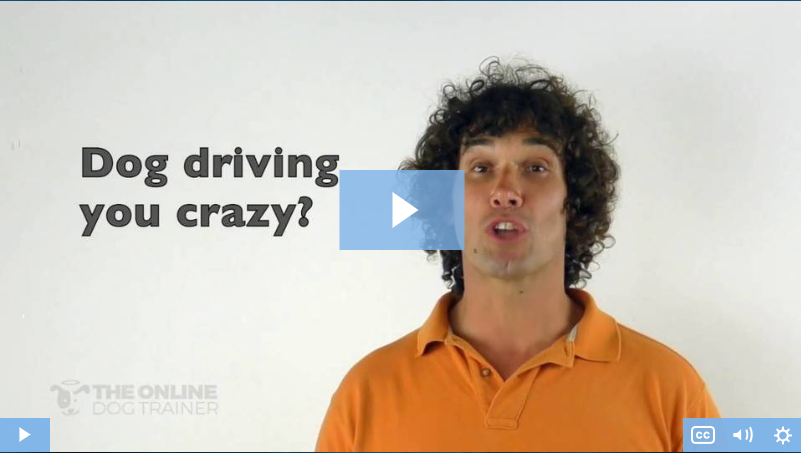Most owners, especially those who have been kind enough to rehome, often forget the importance of house training an older dog.
It is not uncommon for dogs to reach middle or even later age without ever been instructed how to behave appropriately inside the home.
Now, there could be many reasons for this. Ranging from poor socialization and neglect, or being kept outdoors for the majority of their life.
But whatever the reason, your duty as an owner is to correctly train your older dog how to do their ‘business’ around your property.
And lucky for you, it isn’t as difficult as it seems.
Just remember, even if you’ve already introduced an older dog to your household. You still need to perform some form of socialization and behavioral training.
Just make sure house training is towards the top of your priorities.
Watch The Video To Discover The #1 Way To Get Your Dog Fully Housetrained…
(video will open in new window)
Benefits Of House Training
Now, there are many advantages of being able to trust your dog to stick to your toileting rules.
The most obvious being damage prevention to your floors, carpets, and walls.
Still, accidents will happen during training, so just be careful to not lose your temper and take it out on your faithful old friend as this will just confuse them and may even be interpreted as praise.
You see, many older dogs can exhibit attention seeking behavior – especially if they are coming fresh from a rehousing kennel.
And if they believe that inappropriate toileting gets your attention then it can become a real issue.
Bladder Control
In an ideal world, your dog will be able to hold his bladder overnight and for periods during the day when you are going about your own business.
After all, unlike puppies, they have fully developed bladders which can generally be held for around eight hours.
Of course, this may differ between dogs depending on age and health.
But should they need to use an indoor potty, having them able to do so without supervision is a huge advantage when life gets in the way.
Toilet training is not just an essential project for helping your dog to toilet appropriately at home.
Having them understand where they can and cannot defecate will establish a clearcut boundary.
And the more boundaries that your dog comes to understand, the more receptive they’ll be to more advanced aspects of training.
Providing you reinforce the rules consistently and praise appropriate behavior, you’ll see knock-on positives further down the line.
So in a nutshell, a dog who is comfortably house trained will be well on course towards being a great family pet.
Related: Discover The #1 Way To Get Your Dog FULLY Housetrained The Quick & Easy Way
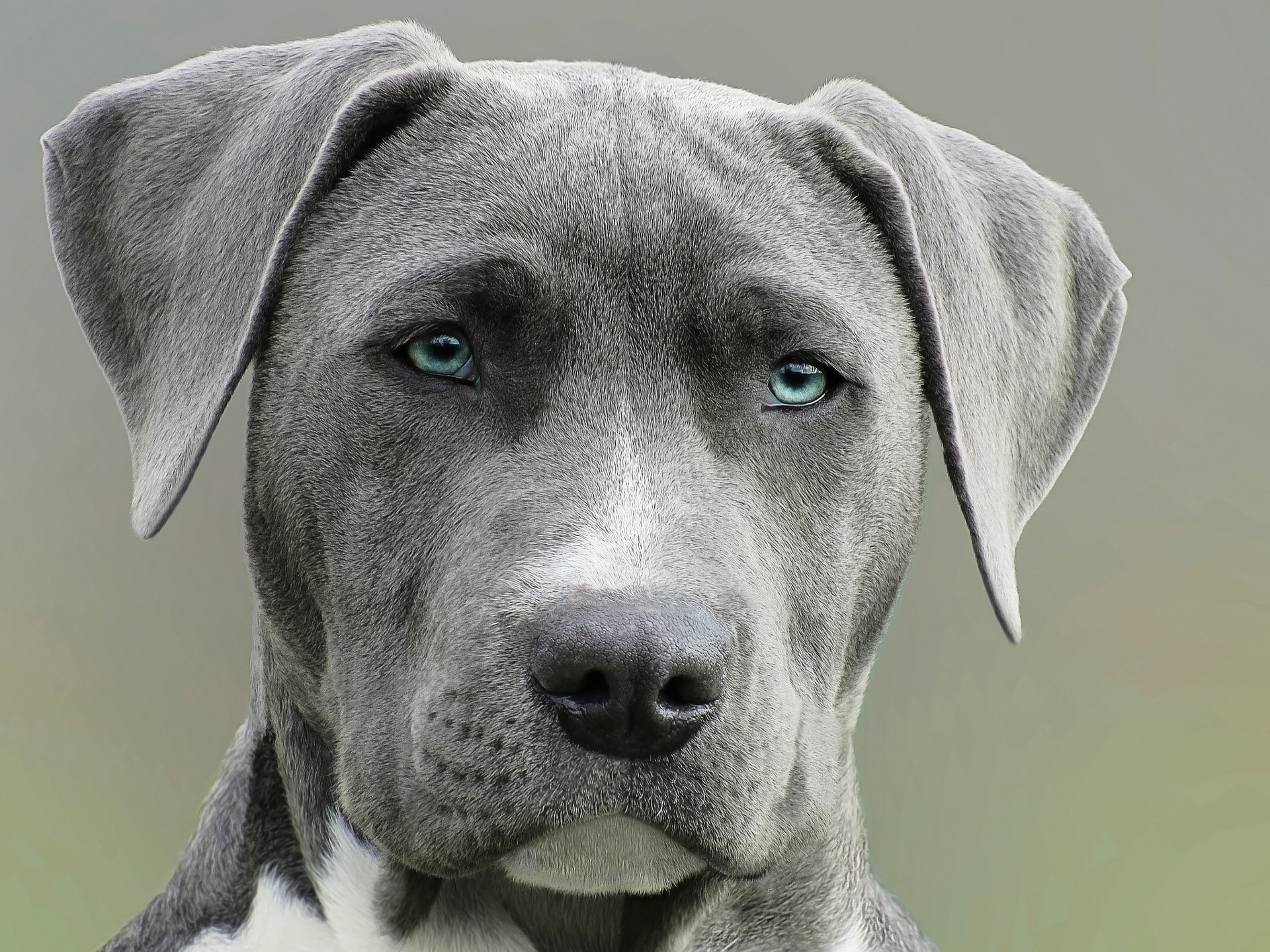
Difficulties Of House Training An Older Dog
Performing effective house training towards adult dogs is pretty much all about consistency and repetition.
Fortunately, most dogs will who do not have deep behavioral issues will pick up on this pretty quickly.
And you can consider your dog to be allowed to go unsupervised after a week or so of being accident-free.
Do be aware that just like puppies, older dogs are still going to make mistakes.
Remember that no dog is the same, and it is up to you as owner/pack leader to formulate a training program that is appropriate to their needs, circumstances and former history.
Many (but not all!) adult dogs who aren’t housebroken will have other training and obedience deficits.
The extent of these will play a large part in determining how receptive they are to learning the new rules.
While many older dogs can pick up toilet training surprisingly quickly, it is important that owners are aware of the potential difficulties that may not at first be apparent.
Here is a selection of the most important reasons why people may occasionally encounter difficulties in house training an older dog…
Medical Problems
Should you feel that you have hit a brick wall in trying to coach your dog acceptable toileting habits, then the first step is to make sure there are no underlying physiological concerns.
If you have rehomed your new dog then the shelter ought to have informed you of any conditions that may require ongoing treatment or supervision.
But the fact is, that it is not unusual for these to be missed during cursory brief examinations.
UTI’s, bladder stones, or simply a weak sphincter or age-related incontinence are common problems that inevitably make toilet training much more difficult.
So look out for your dog needing to urinate and/or defecate alarmingly frequently.
And make sure to get to visit your veterinarian as soon as possible if they have irregular consistency or color.
Chances are that it could be an issue that is easy to resolve such as a food allergy. But in some cases, it could be a gastric tract issue or similar issue.
Establish your dog is physically in reasonable condition before undertaking any training methods.
Socialization Problems
As mentioned above, dogs who lack or have only experienced incomplete house training are far more liable to be slow learners in adulthood.
However, while puppyhood is a very important time for dogs to learn how to follow rules. It must be remembered that even the most receptive dogs may forget occasionally.
Those which have been rehomed and have never been appropriately trained may take a while to adapt, especially if they have spent most of their life defecating in the yard.
So it’s not uncommon for dogs to only be comfortable toileting on familiar surfaces (sand, grass, soil etc).
But eventually, they will have to go, and if that means the carpet then so be it!
Also, bear in mind that some dogs are not comfortable toileting in front of people.
This is why many dogs will seem to be perfectly fine and not need to go on their indoor potty when in fact, they are bursting and just waiting for some privacy.
And to make matters worse, once you leave them alone, they may not understand where the appropriate places to use are.
Anyone who has experienced taking their dog outside, letting them back in when they do not ‘go’, left them alone for ten minutes just to find a soiled floor when they return will understand the frustration.
It can be resolved, just keep your cool and never punish your dog for such accidents.
Related: Discover The #1 Way To Get Your Dog FULLY Housetrained The Quick & Easy Way
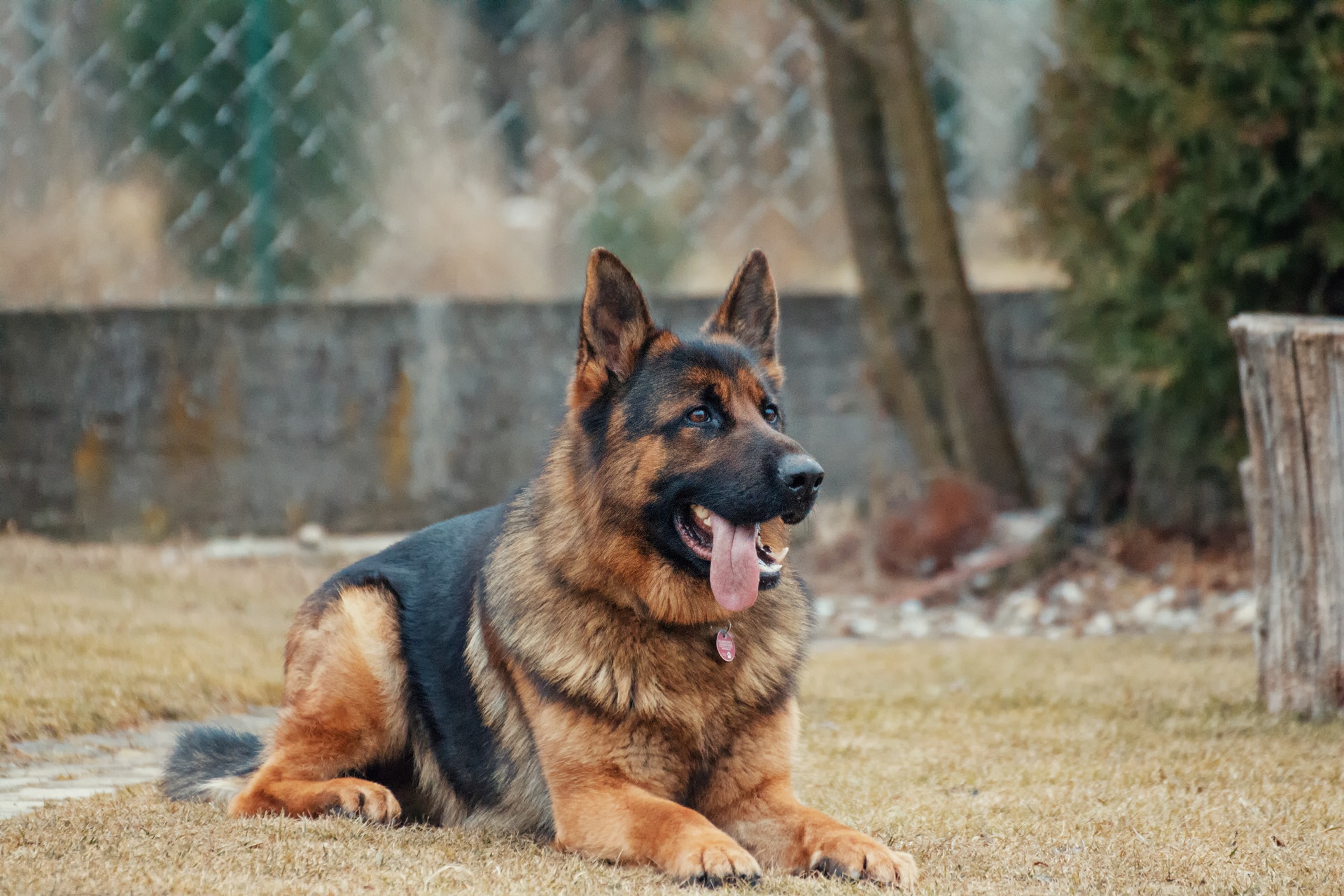
Anxiety
Dogs are creatures of habit and routine. And nothing pleases them more than a perfect balance between rest, feeding, playtime and exercise appropriate to their needs.
So if for whatever reason, this becomes altered, it can cause acute anxiety and one of the ways that can sometimes be demonstrated is inappropriate defecation (alongside many others).
Anxiety may be caused by a huge variety of other reasons, and almost inevitably a stressed and confused pooch is much more liable to forget and/or ignore the basic rules.
You can often tell anxiety related ‘accidents’ by the location they occur.
Dogs suffering from anxiety will tend to defecate near familiar and reassuring scents.
Unfortunately for us, those tend to be living spaces, bedrooms, and kitchens.
It is rare for an anxious dog to soil around their own sleeping space.
Our responsibility as owners is to establish the cause for the anxiety and address it.
Depending on the source(s) that may be straightforward or extremely difficult.
Either way, it is sensible to go back to basics with some remedial house training lessons.
Territorial Marking
You may have noticed the astonishing frequency most dogs urinate during their walks.
Marking territory is natural and it is nearly inevitable that they will perform this around the house at some stage.
If you have replaced an old dog with a mature rescue, it is good practice to eliminate as many residual scents as possible by using specialist sprays that are designed to totally mask scents (see your veterinarian).
Remember, you want to start training with a clean canvas if possible.
If successful, your dog is far less likely to mark anything in the home.
Alongside these four common problems that people encounter with toilet training older dogs, there are plenty of other reasons why it may become especially difficult in some cases.
These may include…
- Separation anxiety for dogs who are not used to being left alone.
- Overexcitement is especially common in dogs that have been neglected for many years.
- Submissive tendencies can occur if they have an inherent fear of humans or other dogs.
Related: Discover The #1 Way To Get Your Dog FULLY Housetrained The Quick & Easy Way
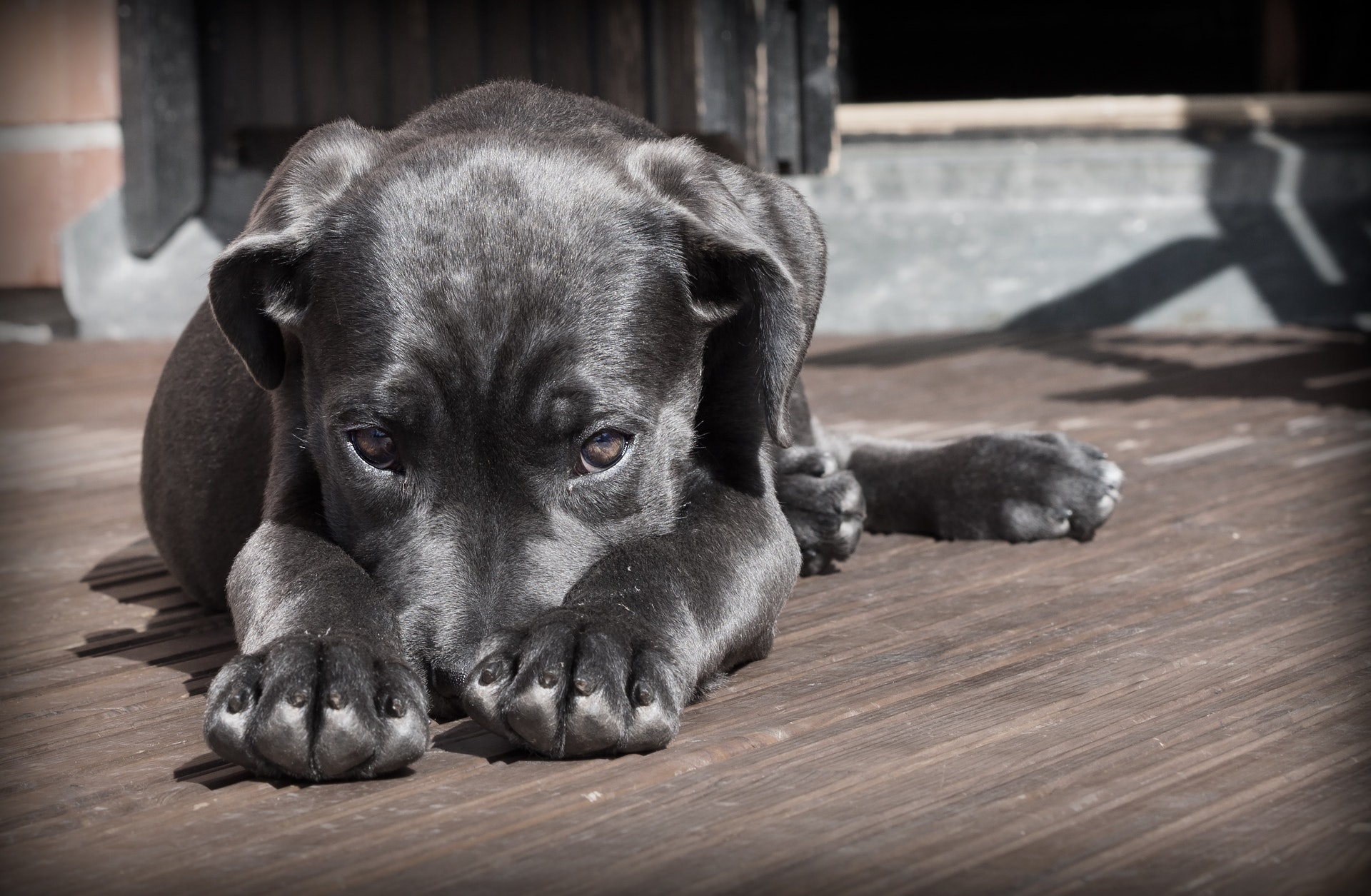
The Best Way To House Train An Older Dog
When you introduce a new dog to your family and home, it is essential from the outset to set about understanding what makes them ‘tick’.
You can be sure they’re also doing the same about you!
But developing the extent of their toileting independence is one of the most important first steps, and should be established well in advance before bringing them home!
Establish A Toileting Routine From Day One
You must adopt a standard routine from the moment you start training your beloved pal.
The sooner they understand their approved places, the easier everyone’s life will be!
So for the first couple of weeks, it is essential to stick to a regimented routine such as…
Step #1
Take them to their designated toileting spot first thing in the morning and last thing at night.
Ideally, this ought to be outdoors but if using a potty instead/as well this advice still works well.
Older dogs can usually hold on far longer than pups/adolescents but even still, take them to their place every couple of hours at regular intervals throughout the day.
You should keep a close eye for any signs they are planning on going where they shouldn’t.
Step #2
Placing down scraps of newspaper with some of their droppings can help considerably in the effort to help them understand that is where they ought to go.
Obviously, this is easier if exclusively using outdoor toileting spaces.
Step #3
Every time you pick or lead them to their toilet, do so without any excitement or cajoling.
Pooping is not playtime – and use a leash if you have to. Just try not to mix this up with walkie times.
If going outside, stay with your dog until they have finished.
If they are being difficult or not going even when they really should, then try turning your back to them and silently waiting.
Odd as it might sound, it does work surprisingly often!
Step #4
If they still refuse to go after a few minutes then there’s no point waiting any longer.
This is where your patience may be tested so remember to keep cool.
Take them back indoors (maintain that emotionlessness) and just keep a very close watch over them.
Should they saunter off to a different room, follow them.
Take them back outdoors to their spot every 20 minutes until they finally go.
Step #5
Once they have finished, break out of that cold character and give them some praise and treat.
They will interpret this as an example of good behavior, and even more so if you are also performing appropriate other basic training supported by such positive reinforcement.
You’ll be surprised how after a couple of weeks conducting various kinds of training – often with mixed results – that all of a sudden everything just falls into place at the same time.
The one word that explains that is consistency.
Related: Discover The #1 Way To Get Your Dog FULLY Housetrained The Quick & Easy Way
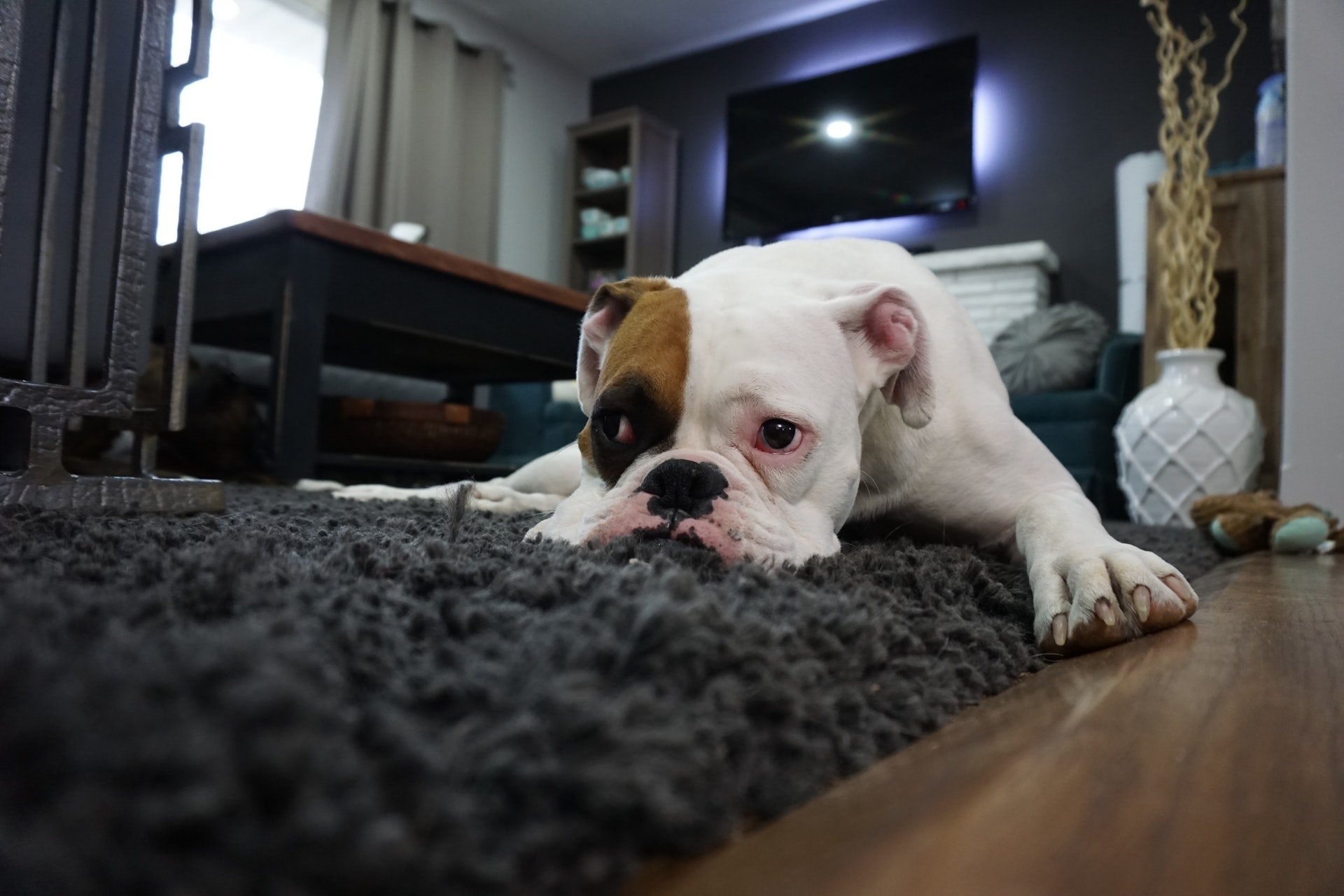
Signs That Your Dog Needs To Go
Regardless of breed and age, there are some surefire ways to identify when your dog may be needing to go.
These include…
- Pointless circling.
- Sniffing the floor.
- General restlessness despite having been exercised.
- Very light whimpering.
- They are checking out where you and other members of the household are.
- Sneaking off towards a place they have dirtied before.
Sounds easy to identify, right?
Not quite.
Even old dogs are very prone to anxiety for all sorts of reasons when they are introduced to a new family.
And while the above are telltale indications that a dog is wanting to relieve themselves. Just remember that it could be a display that something else is causing them trouble.
But ultimately, it is up to you to establish this.
Should Your Crate Train An Older Dog?
Absolutely yes!
While many owners dislike the idea of cooping their buddy in a crate for long periods. There are going to be times when you simply need to leave them unattended for a short while.
So for this reason – and many others, it is essential that your dog becomes familiar with their crate and associates it with comfort and security.
Dogs will very rarely defecate anywhere close to where they sleep unless they are in a state of acute panic.
Some people find incorporating general crate training into toilet training to be especially useful in older dogs.
By placing them into their safe space at short but regular intervals (remember those toys, puzzles, cushions, and water) it enhances familiarity and bladder control.
Just be sure to understand how to perform this correctly as it can be a huge help towards establishing an effective toileting routine.
Related: Discover The #1 Way To Get Your Dog FULLY Housetrained The Quick & Easy Way
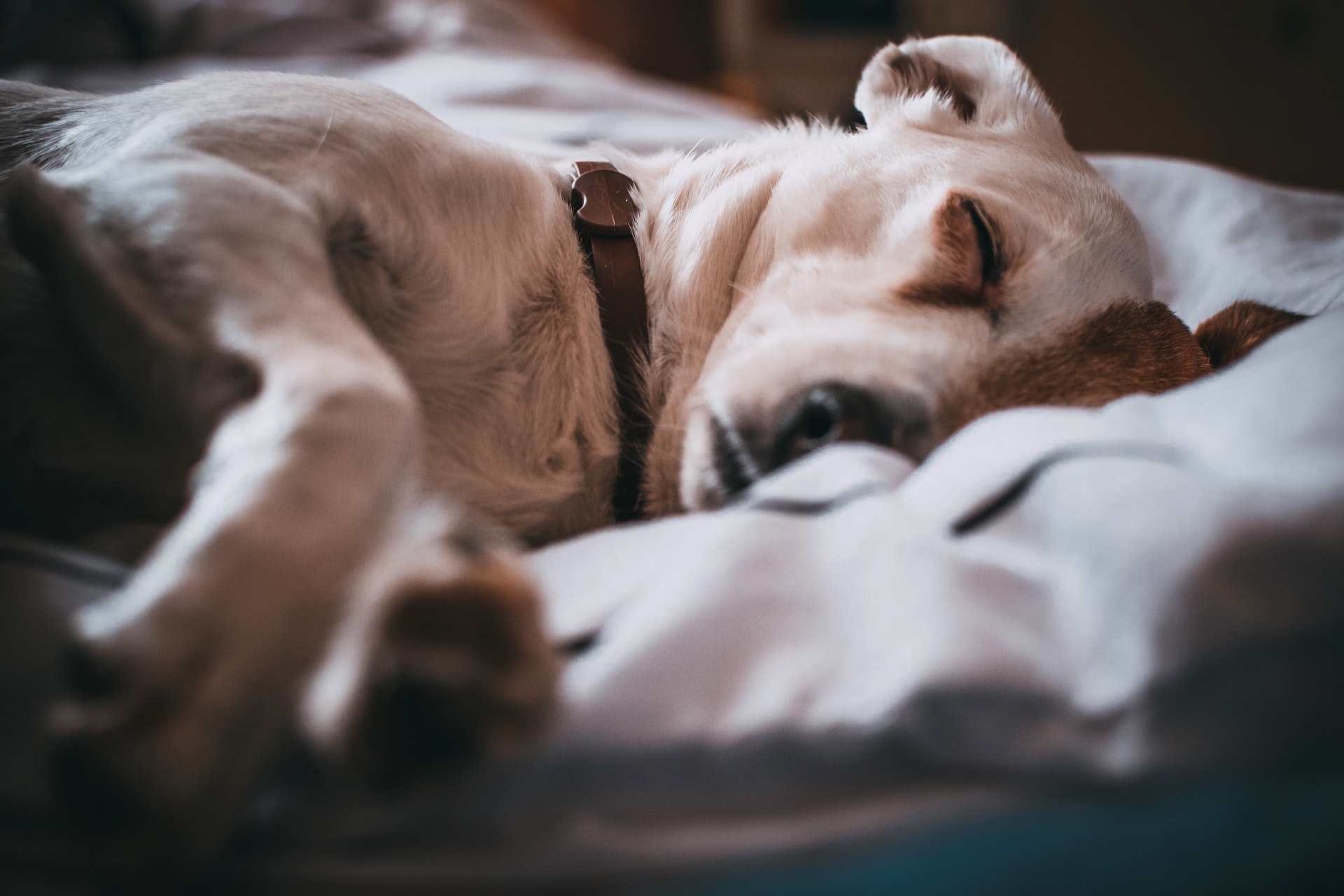
When You Have To Go Out
In an ideal world, you or a member of your household ought to be around your dog consistently for at least the first few weeks of house training.
Unfortunately, that is not always practical so you need to establish a system that controls where your dog goes when left to their own devices. Fast!
Within canine behaviorist circles, there is much debate over how long an adult dog can be left alone when crated.
It really does depend hugely upon the dog, but any more than four hours is likely going to be stretching the limits.
The last thing we want is for your dog to defecate in their safe space.
If you have to leave them for the day due to work commitments, then you need to isolate a ‘dog proof’ room which ought to resemble canine paradise (loaded with treats and comforts).
When it comes to toileting, your dog is going to need to go.
For this reason, dogs which are not potty trained must be isolated into a room with easy clean flooring and walls. And ideally well ventilated.
Now, your dog will not be happy about being kept locked away for long periods.
So during the early stages of toilet training, expect to come home to quite a fair amount of mess and accidents.
Frustrating as it may well be, keep your cool and give your dog the attention it needs.
Then resume toilet training by letting them outside right away.
Another thing to consider is looking into potential ways that a friend/neighbor may be able to help by letting them out for a short while over the day.
Of course, there are also professional services that may be worth a look.
Overnight Training
Due mostly to the stress involved with integrating into a new home, your dog is likely going to need to go during the night.
Once again – calmness is essential here s try and keep your dog’s crate within easy earshot.
Most puppy training involves crating them nearby to start with and slowly increasing the distance over a matter of weeks.
The same is also good for older dogs. Not because they are necessarily scared or worried but because they may need to use the toilet and are desperate not to dirty their crate.
So be prepared to just get up once or twice a night and silently go through the motions.
Do not make this anything more than a simple function and remember, it is not playtime at 4am!
Generally speaking, this should only last a short while before they are comfortable enough to hold it in without causing a disturbance.
Related: Discover The #1 Way To Get Your Dog FULLY Housetrained The Quick & Easy Way

Sticking To Routine Works
Providing you praise good behavior and do not lose your temper over the occasional accident. This advice ought to be enough to establish solid toileting routines with older dogs pretty quickly.
Most accidents occur due to an oversight on our part.
Yes, it is easy to think that your dog is just messing with you or wanting attention. But the truth is that if you look at their body language you’ll see that they exhibit traits of nervous guilt.
Dogs take no pleasure in dirtying their house/den, and when it happens, just tidy it up without any positive or negative verbal or body language.
They will appreciate it.
Final Thoughts
Many people choose to rehome older dogs because they assume that they’ll simply be easier to handle than excitable young pups.
Often this does turn out to be the case, but there are always still going to be a few hurdles to pass in order to develop a wonderful relationship with your new best buddy.
Obviously, this depends on circumstances, and it is your responsibility to have a plan of approach established in advance of the first time they cross the family threshold.
Do so effectively – and plan for contingencies and changes – and you will have a dog willing to learn and be house trained sooner rather than later.
Should you have rehomed a dog with acute behavioral issues and lack of socialization, then it is sensible to consult with an accredited behavioral expert who can assess peculiarities in behavior and your own circumstances.
Only a tiny minority of dogs fail to understand that toilet discipline is good for everyone and makes life a whole lot easier.
What are your thoughts on house training an older dog? Feel free to leave your tips and ideas in the comments below…
Related: Discover The #1 Way To Get Your Dog FULLY Housetrained The Quick & Easy Way
